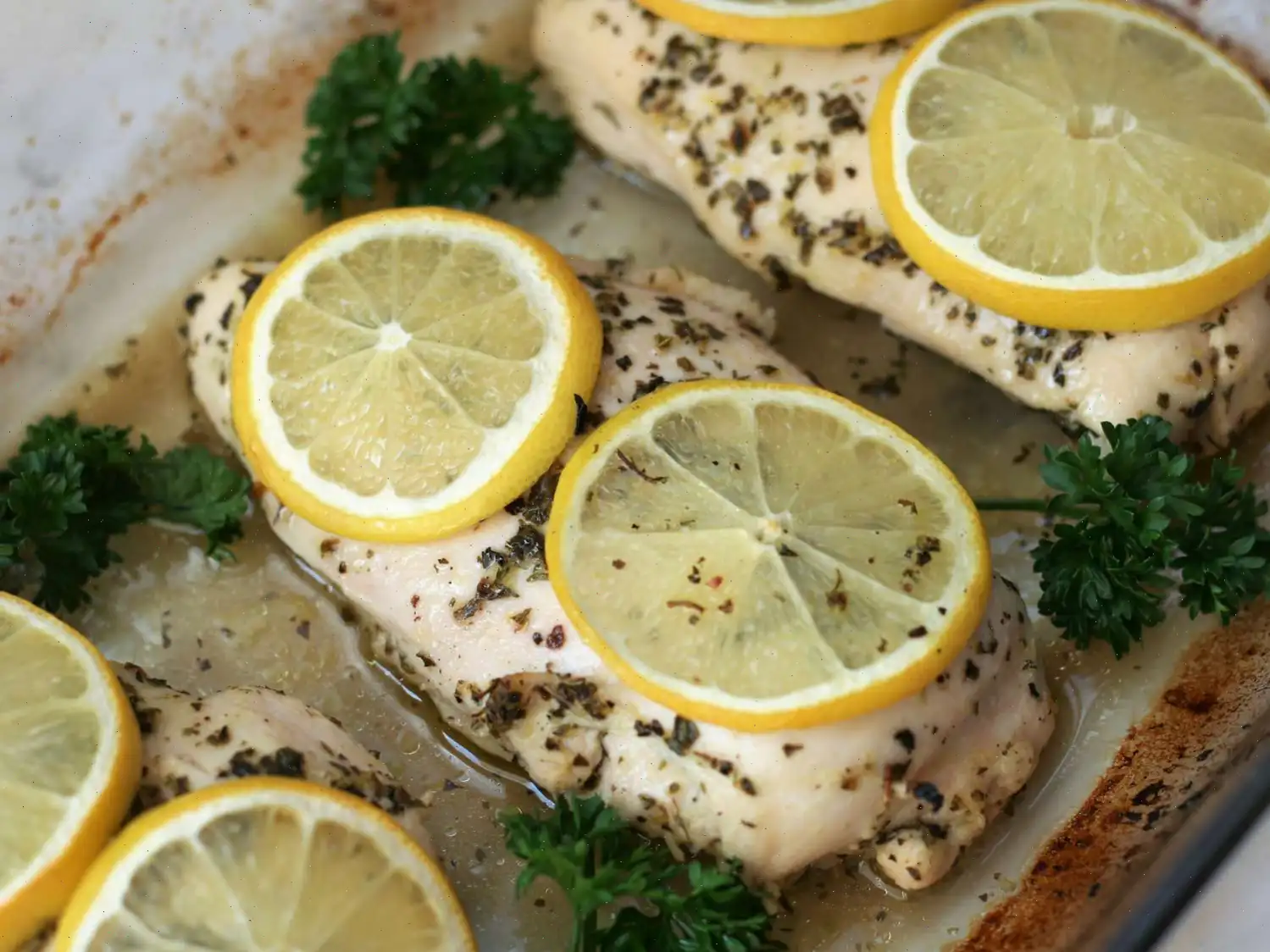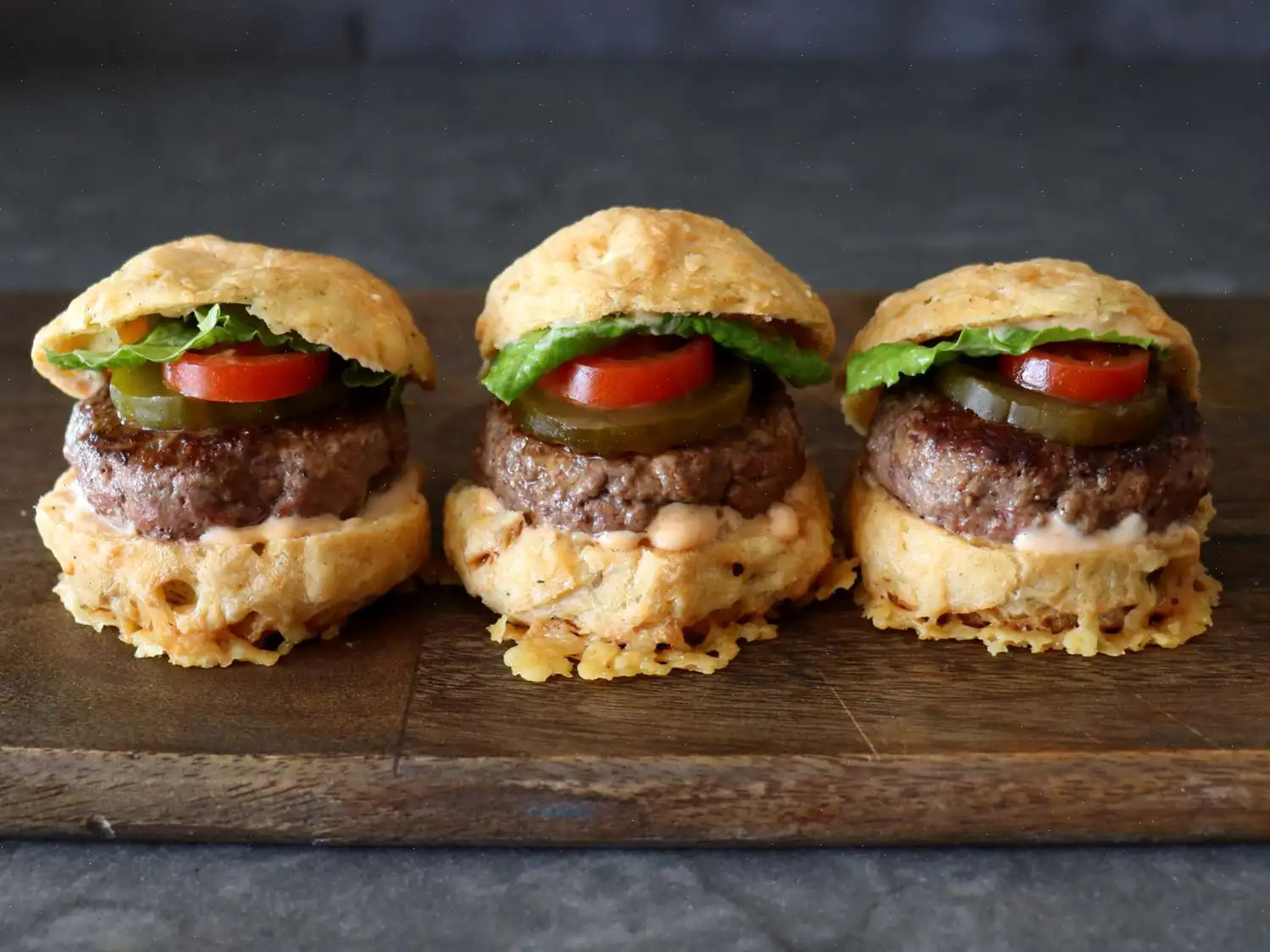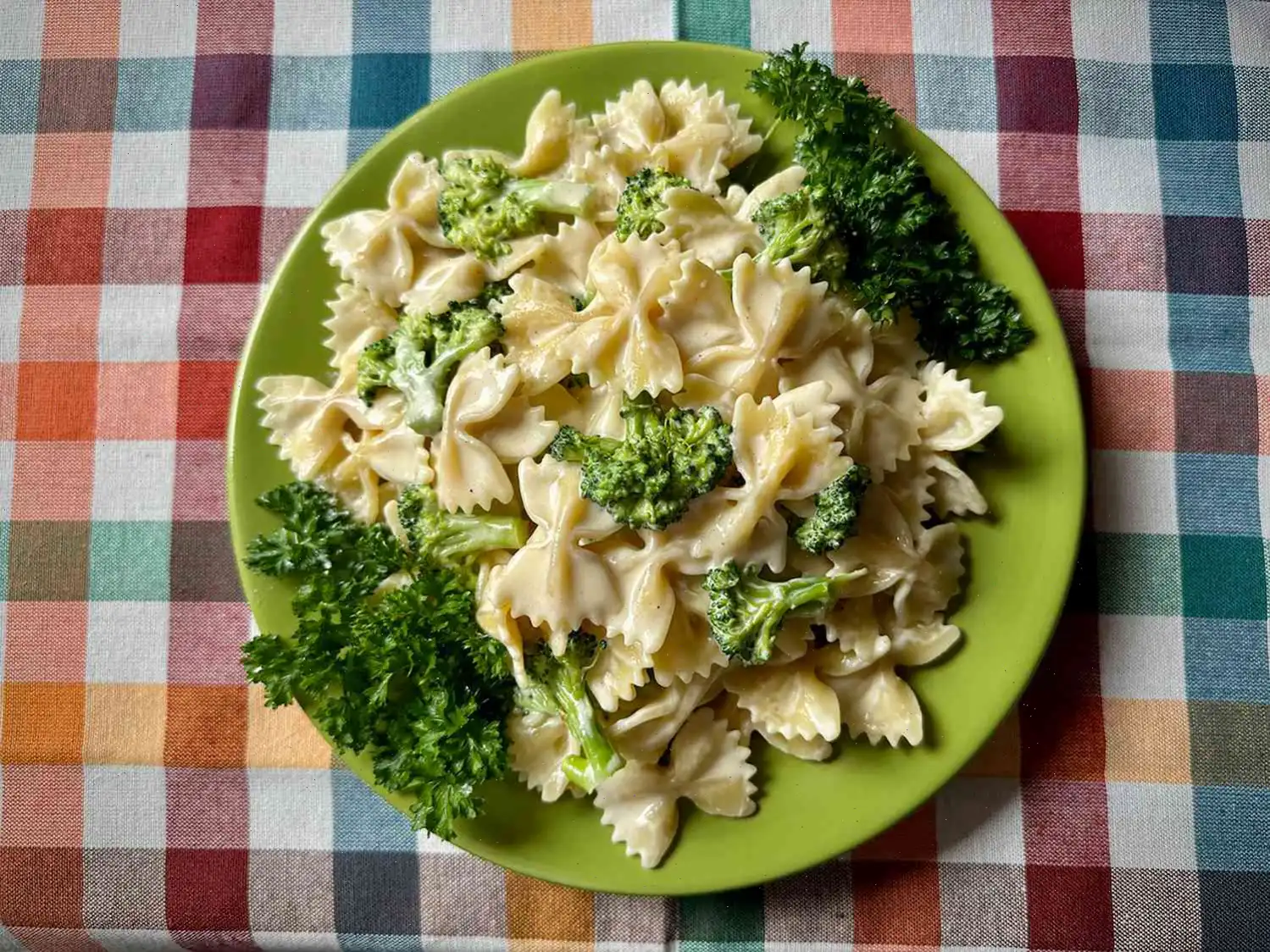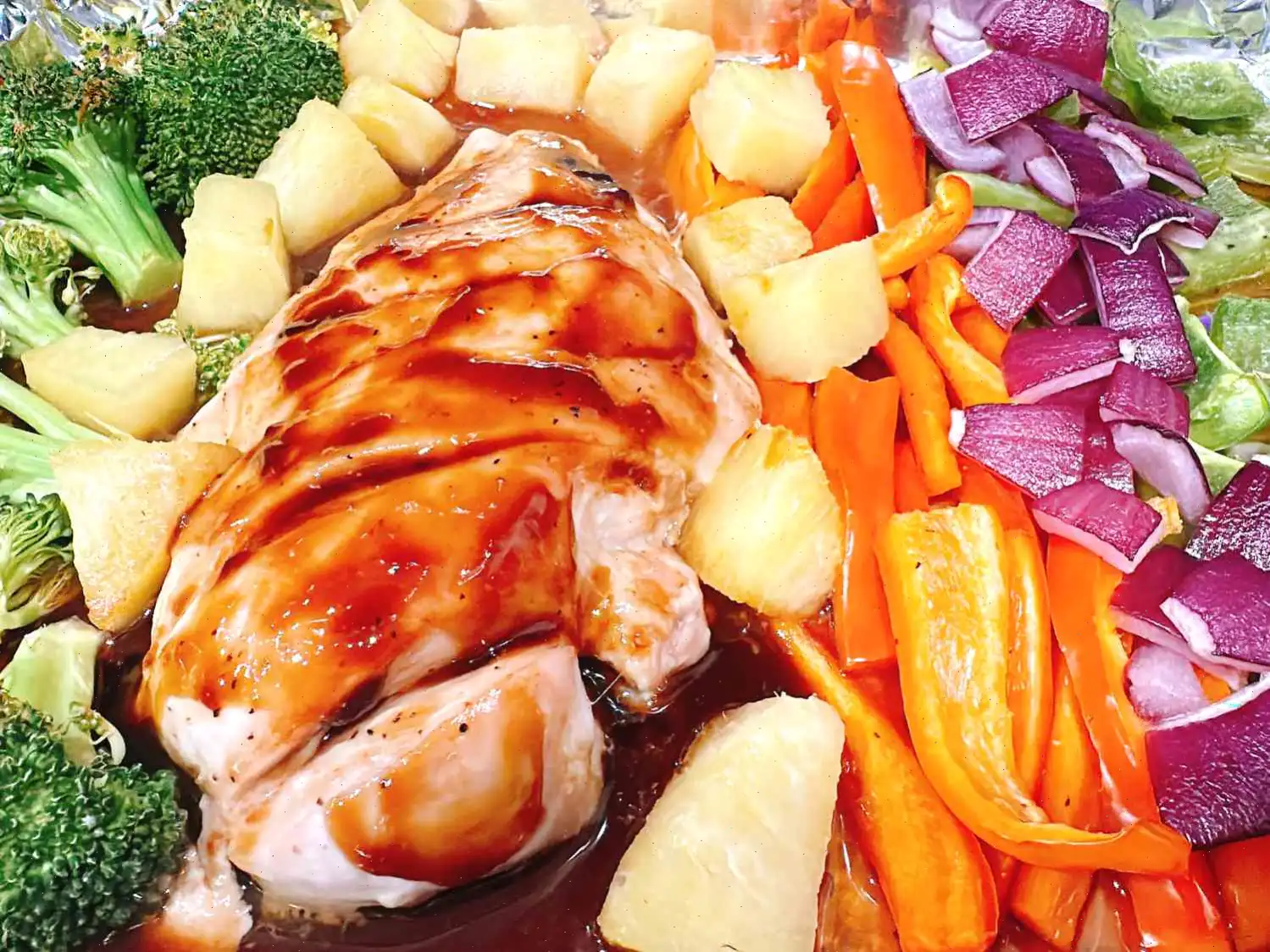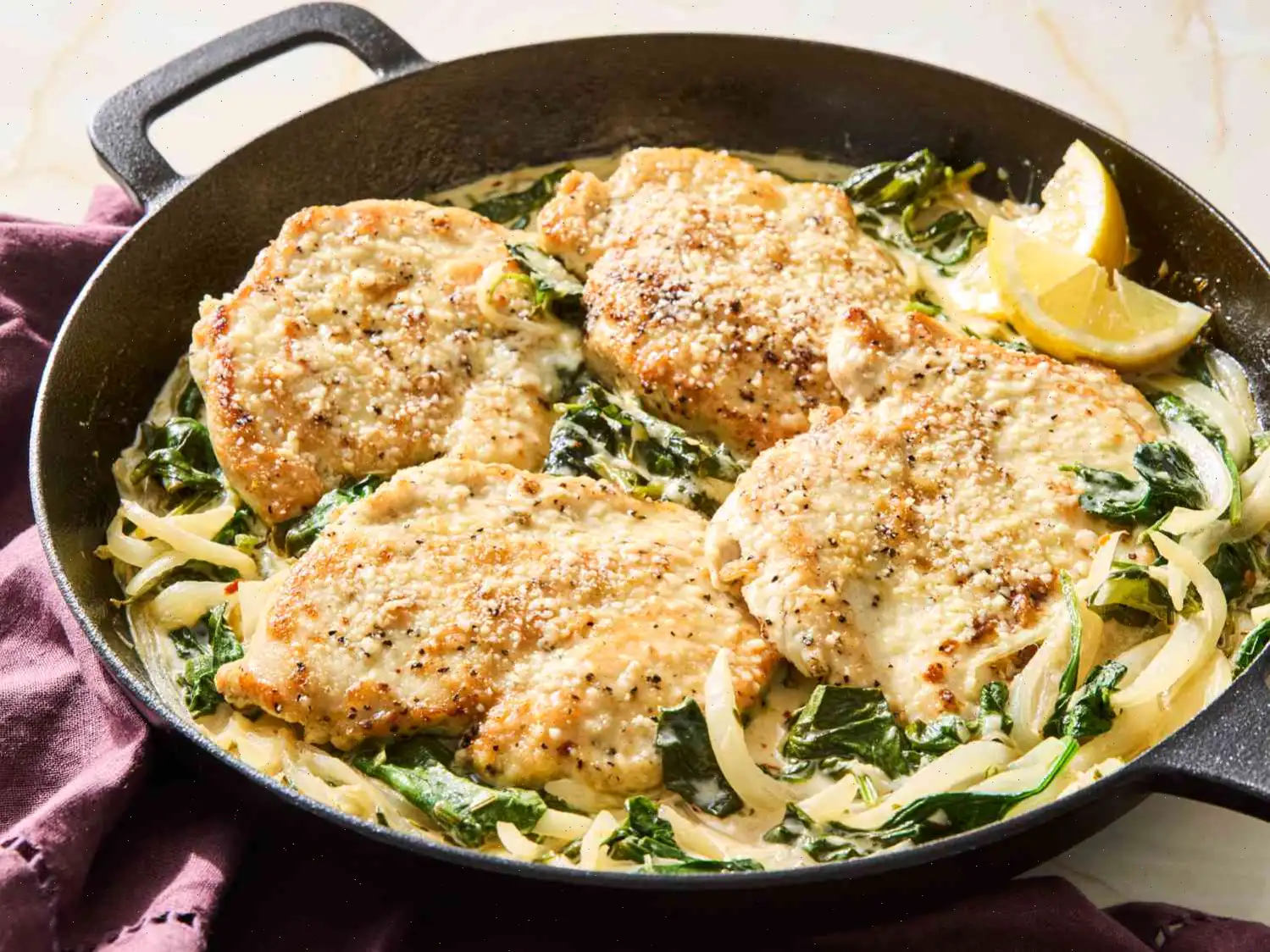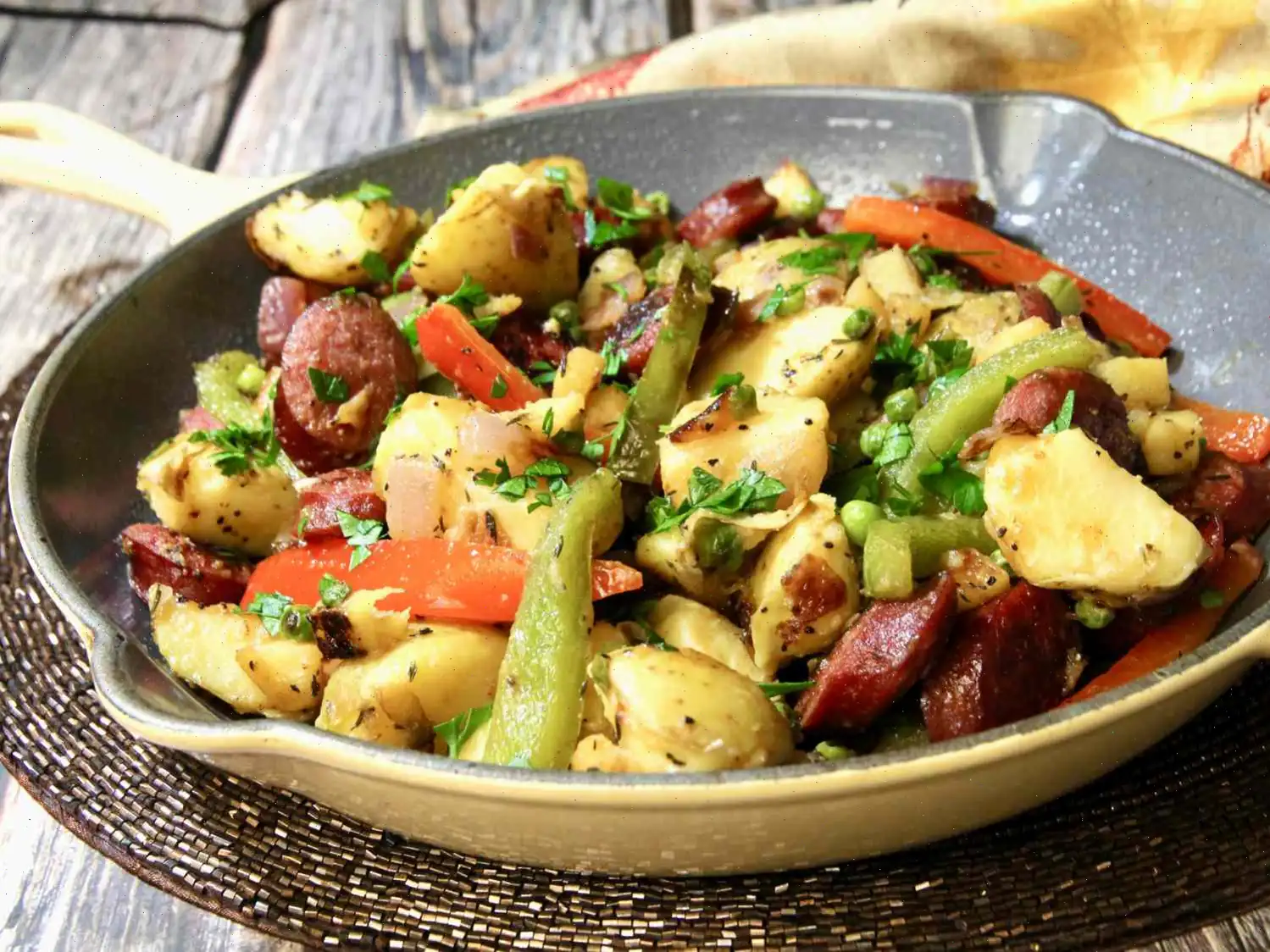
Receta de pechugas de pollo al horno con limón y hierbas
Precalienta el horno y prepárate para una comida riquísima con esta receta de pechugas de pollo al horno con limón y hierbas. La mezcla del limón con su toque cítrico y las hierbas aromáticas da un plato lleno de sabor, ideal para cualquier ocasión. Sigue estos pasos sencillos para conseguir un pollo tierno y jugoso que sorprenderá a tu familia y a tus amigos. ¡Vamos a cocinar!
Ingredientes
- 4 pechugas de pollo sin piel y sin hueso
- 1/3 taza de jugo de limn fresco
- 1/4 taza de aceite de oliva extra virgen
- 1 cucharadita de cscara de limn rallada finamente
- 1 cucharadita de albahaca seca
- 1 cucharadita de organo seco
- 1 cucharadita de perejil seco
- 3/4 cucharadita de sal comn
- 1/2 cucharadita de ajo en polvo
- 1/8 cucharadita de pimienta negra recin molida
- 1 limn entero, cortado en rodajas finas
Instrucciones
- Usa un mazo de carne o un rodillo para aplanar las pechugas de pollo hasta que tengan un grosor uniforme de aproximadamente 2,5 cm, trabajando sobre una superficie limpia.
- Coloca las pechugas de pollo en una bolsa de plstico resellable grande para marinar.
- En un bol aparte, mezcla el jugo de limn, el aceite de oliva, la cscara de limn rallada, la albahaca, el organo, el perejil, la sal, el ajo en polvo y la pimienta negra. Bate bien hasta obtener una mezcla homognea.
- Vierte esta mezcla sobre el pollo dentro de la bolsa. Cierra la bolsa de forma segura y colcala en el refrigerador durante 30 minutos hasta 1 hora para que el pollo absorba los sabores.
- Mientras el pollo se marina, precalienta el horno a 220C (425F).
- Saca el pollo de la bolsa y colcalo en una fuente para horno. Vierte 2 cucharadas de la marinada sobre las pechugas, desechando el resto del lquido.
- Coloca dos rodajas de limn sobre cada pechuga para un toque extra de frescura y aroma ctrico.
- Hornea sin cubrir durante 22 a 24 minutos, o hasta que el pollo alcance una temperatura interna de 74C (165F) en la parte ms gruesa y los jugos salgan claros.
- Deja reposar el pollo durante unos minutos antes de cortarlo en diagonal. Si lo deseas, vierte los jugos de la fuente sobre las piezas para darle ms sabor.
Consejos
- No dejes marinar el pollo ms de 2 horas; el cido del limn puede descomponer demasiado las protenas y hacer que la carne quede dura.
- Necesitars entre 3 y 4 limones, dependiendo de su tamao, tanto para el jugo como para las rodajas de decoracin.
- Es recomendable usar pechugas de pollo de entre 170 y 225 gramos para que la coccin sea uniforme.
Informacin Nutricional por Porcin (1 pechuga)
- Caloras: 480
- Grasas Totales: 20g (26% Valor Diario)
- Grasas Saturadas: 4g (18% Valor Diario)
- Colesterol: 145mg (48% Valor Diario)
- Sodio: 533mg (23% Valor Diario)
- Carbohidratos: 24g (9% Valor Diario)
- Fibra Diettica: 6g (22% Valor Diario)
- Azcares: 9g
- Protenas: 55g (110% Valor Diario)
- Vitamina C: 111mg (123% Valor Diario)
- Calcio: 93mg (7% Valor Diario)
- Hierro: 3mg (19% Valor Diario)
- Potasio: 802mg (17% Valor Diario)
Los valores diarios estn basados en una dieta de 2000 caloras. Tus valores diarios pueden variar.
La Historia Detrs de las Pechugas de Pollo al Horno con Limn y Hierbas
Las Pechugas de Pollo al Horno con Limn y Hierbas es un plato que combina la sencillez del pollo asado con los sabores frescos y cidos del limn y las hierbas aromticas. Los orgenes de esta receta se encuentran en la cocina mediterrnea, donde los ctricos y las hierbas frescas se han utilizado durante siglos para realzar los sabores naturales del pollo y el marisco. Con el tiempo, este estilo de preparacin se extendi a Amrica del Norte, donde los cocineros caseros lo adoptaron debido a su facilidad y perfil saludable, convirtindolo en un plato bsico en las cocinas estadounidenses.
Caractersticas Regionales
Aunque sus races mediterrneas son evidentes, el plato se ha adaptado a los gustos regionales. En los Estados Unidos, esta receta a menudo incluye una mezcla de hierbas secas como albahaca, organo y perejil, reflejando la preferencia estadounidense por los sabores audaces pero accesibles. Algunas regiones pueden hacer hincapi en el aceite de oliva o aadir un toque de ajo para dar ms profundidad. El uso del limn, tanto en jugo como en rodajas, es una caracterstica distintiva del plato, proporcionando un sabor cido que equilibra la riqueza del pollo horneado.
Lo que lo Diferencia de Platos Similares
A diferencia de los platos de pollo frito o empanado, las Pechugas de Pollo al Horno con Limn y Hierbas se destacan por su ligereza y sabor fresco. La combinacin de ctricos y hierbas le da un sabor ms vibrante en comparacin con el pollo asado convencional. Aunque es similar a la receta de pollo piccata o al pollo con limn en sartn, la versin al horno es ms sencilla, requiere menos pasos y menos tiempo de coccin activa, lo que la convierte en una opcin perfecta para las cenas entre semana. La coccin suave conserva la humedad, asegurando que el pollo permanezca tierno y jugoso.
Dnde Se Suele Servir
Este plato se sirve comnmente en hogares, restaurantes informales y cafeteras que se enfocan en comidas saludables y sabrosas. Combina maravillosamente con verduras asadas, arroz o una ensalada fresca, lo que lo hace verstil para el almuerzo o la cena. Algunos bistrs y restaurantes de estilo familiar lo incluyen en sus mens estacionales, especialmente en primavera y verano, cuando los limones frescos estn en su mejor momento.
Datos Interesantes
- La acidez del jugo de limn no solo agrega sabor, sino que tambin ayuda a ablandar el pollo, creando una textura delicada.
- El uso de tanto jugo de limn como rodajas de limn mejora la apariencia visual y intensifica el aroma ctrico durante el horneado.
- Esta receta es naturalmente libre de gluten y se puede adaptar fcilmente a dietas bajas en carbohidratos o keto si se acompaa de verduras asadas en lugar de guarniciones con almidn.
- Histricamente, asar carne con ctricos era un mtodo comn en las regiones costeras del Mediterrneo, ya que los limones y las hierbas estaban fcilmente disponibles y ayudaban a enmascarar los sabores fuertes de las aves de corral ms antiguas.
- La presentacin brillante del plato, con el pollo dorado al horno cubierto con rodajas de limn, lo hace popular para reuniones familiares y eventos informales.

